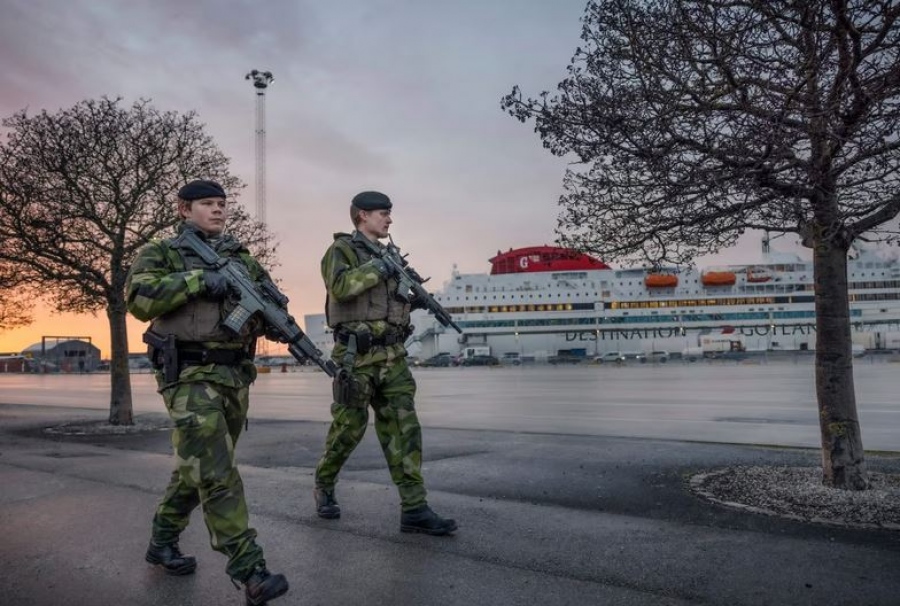
Russian tankers carry communications equipment that is not required on any commercial ship
big headache, Russian Shadow Fleets, which operates outside the formal shipping sector and has unclear ownership as well as almost no insurance, now threatens Gotland – and by extension Sweden.
According to Politico, since these ships do not belong to any armed forces, there is not much NATO can do about it.
And while Sweden Despite hopes now that EU sanctions may help, this solution will be delayed.
In order to reach their destinations, which are often Indian and Chinese portsRussian shadow ships are forced to travel through the waters of some NATO countries, as a large portion of Russian oil exits through Baltic Sea ports.
But the journey of these ready people, in fact Unsecured carriers Crossing the Baltic Sea poses an environmental risk to NATO members there – and this is exacerbated by the fact that the shadow ships are in poor condition.
To make matters worse, many of them refuse to navigate when sailing through the difficult and narrow Great Danish Belt.
Environmental threat – Sweden is powerless to respond
Adding to the environmental threat, shadow oil tankers have recently begun roaming off the east coast of Jutland, engaging in dangerous ship-to-ship transfers of oil.
These ships do this outside the 12 nautical miles that mark any country's territorial waters – meaning that although the shadow ships are in Sweden's exclusive economic zone, the country can do almost nothing to stop them.
This is important not only because their presence is provocative and can cause enormous environmental damage, but – as the Swedish Navy reported in late April – These carriers also carry communications equipment that is not required on any commercial ship.
They also appear to function as listening stations.
None of this surprises Gotland-based Solveig Artsman.
In fact, quite the opposite.
Artsman recalls that in 2016, a car ferry traveling from St. Petersburg began regularly showing up outside the port of Visby and cruising there — even though its cars were not destined for Visby.
“He came in very regularly and always stayed a long time,” he told Politico.
“He was always coming and going to St. Petersburg.
It reminded me of that car transporter when the shadow ships started showing up here.
“If you live on Jutland, you'll be used to strange things.”
One day in April 1961, the lighthouse keeper at Nar, located on the southeast coast of the island, heard an emergency distress call from a nearby boat.
He immediately called the Coast Guard, while the visiting lighthouse keeper responded to the SOS signal.
But the two men noticed that the boat appeared to be anchored and out of danger.
About 30 minutes later, two Soviet naval officers – the ship's captain and one of his subordinates – arrived at the lighthouse, having beached themselves in a lifeboat.
The young sailor soon changed his mind and returned to the boat, but the captain remained and seemed to have something to announce.
Later, when the Coast Guard arrived and called the police, the mysterious captain turned out to be a Lithuanian Soviet citizen named Jonas Pliskis, who wanted to defect to the West.
Yes, that's the same Jonas Pleski who was later immortalized in The Hunt for Red October.
In 2007, a majority-Russian-owned company appeared on Jutland, requesting permission to exclusively lease the eastern port of Slate for several months.
Artsman, then a member of the island council, opposed giving it to the company, but lost and was denounced as a Russophobe.
However, it is clear today that hosting this work may not have been the best idea: the company was Nord Stream.
So what can Sweden do about the current shadow fleet and the dual threats of environmental destruction and ongoing espionage?
According to Swedish Foreign Minister Tobias Billström, the European Commission has agreed to deal with the Shadow Fleet in the next round of EU sanctions. But while sanctions against this dangerous fleet are better than no sanctions at all, this process will take a long time: the fleet is believed to consist of more than 1,400 ships, and they must be located, investigated and their owners found.
Moreover, for every ship subject to sanctions, at least one other ship is likely to join the fleet.
The US Office of Foreign Assets Control already enforces such sanctions, which is difficult and exhausting work.
Two meters from the European Union
However, in the meantime, there are two measures that EU countries could take that would have a rapid impact on the Shadow Fleet: first, through the maritime surveillance programme. European Defense Agency (MARSUR), The European Union can track and investigate all suspicious shadow ships sailing in the waters of member states.
Then the EU can also build on the Baltic Sea Action Plan.
This intergovernmental agreement, to which Russia (as well as the European Union) is a signatory, constitutes “a strategic program of measures and actions aimed at achieving a good marine environmental situation, ultimately leading to a healthy Baltic Sea.”
Since ship-to-ship transfers of oil are certainly not consistent with the Convention, other signatories to it will have the right to try to intervene when such transfers occur.
Neither of these measures will hinder the Shadow Fleet – in fact, it is impossible to stop this destructive fleet.
However, it will make the fleet less of a threat to Gotland, even as mysterious events continue on and around the island.
This is the nature of what is right between the West and Russia.
www.bankingnews.gr

“Avid problem solver. Extreme social media junkie. Beer buff. Coffee guru. Internet geek. Travel ninja.”





More Stories
“Recycling – Changing the water heater”: the possibility of paying the financing to the institution once or partially
Libya: US General Meets Haftar Amid Tensions Between Governments
New tax exemption package and incentives for business and corporate mergers..